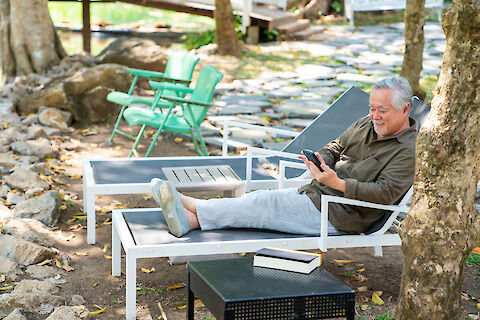
Managing diabetes becomes increasingly challenging for seniors as the summer heat rises. The hot weather conditions can exacerbate diabetic symptoms and pose additional risks, including dehydration or hypoglycemia. However, regardless of the temperature outside, it is possible to safeguard your health and keep your diabetes under control with the right precautions and tips. This Senior Helpers blog post explores the impact of hot weather on diabetes and suggests practical ways to successfully manage the condition during the summer months.
The Impact of Hot Weather on Diabetes
Hot weather conditions can have a significant impact on those living with diabetes. High temperatures can make the body produce sweat and cause dehydration. This, in turn, can impact blood glucose levels. Dehydration causes glucose to concentrate, leading to higher-than-normal readings. Excessive heat can also cause blood vessels to dilate. This enhances the absorption of injected insulin, which can cause hypoglycemia.
Practical Tips for Managing Diabetes in Hot Weather
Those with diabetes can take simple, proactive steps to keep their glucose levels in check when the weather is hot. Here are a few tips:
1. Stay Hydrated
Hydration is an integral part of managing diabetes during warmer weather. Seniors with diabetes should try to consume eight to ten glasses of water each day to prevent dehydration, which can spike blood sugar levels. Including hydrating foods like cucumbers, watermelons, and strawberries in your diet can also be beneficial. Keep bottled water on hand if you must be outside during hot summer days.
2. Check Glucose Levels Frequently
An important part of diabetes management is monitoring blood sugar levels. This is even more vital during the summer months. The heat and increased activity often associated with summer can cause swings in sugar levels. Therefore, checking blood glucose levels more frequently can help seniors keep track and act appropriately.
3. Be Vigilant About Meal Planning
It is essential to focus on preparing balanced meals to help maintain stable glucose levels. Meals should include good amounts of lean proteins, fresh fruits, and dark green, leafy vegetables. It is also important to limit the intake of high-sugar foods and drinks that can cause blood sugar levels to spike. Limit caffeine intake and alcoholic drinks as these act as diuretics and cause more fluid loss in the body.
4. Learn to Stay Cool
Choosing the right clothing is another way to beat the heat. Wearing loose, light-colored clothing helps seniors stay cool and prevent overheating. Seniors should also try to stay indoors during peak heat hours or seek shade when outside. It is best to avoid outdoor physical activities when it is hot. Regular rest throughout the day is also crucial to preventing heat exhaustion.
5. Have an Emergency Plan
It is smart to always have a heat emergency plan in place. This includes being able to identify the early signs of heat-related illnesses and knowing what steps to take if these symptoms occur. Keep pertinent emergency phone numbers within easy reach and be prepared to relocate to a nearby air-conditioned facility if necessary.
Senior Helpers Can Help With Diabetes Management
Senior Helpers offers personalized in-home senior care services with the specific needs of our senior community in mind. If you live in the Lincoln, Newcastle, Rio Oso, or Yuba City areas, contact us today at Senior Helpers of Lincoln. We are happy to help you and your loved ones manage diabetes when the temperatures are high.